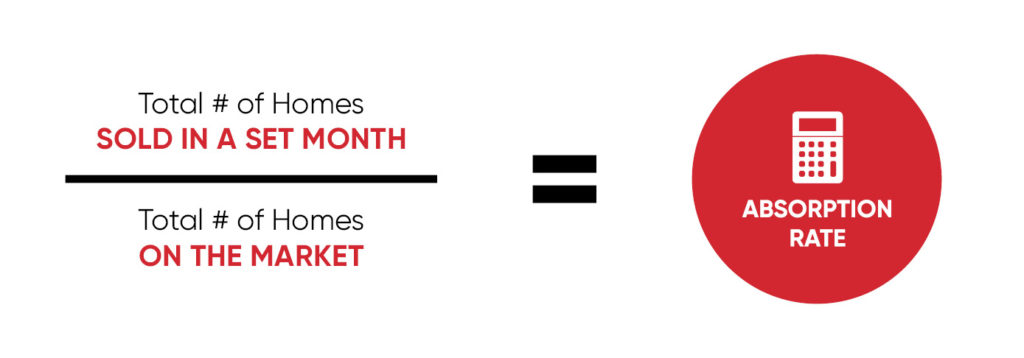- calendar_month September 16, 2022
- folder Housing
Numbers don’t lie. We wish we could say the same for headlines. In our quest for transparency, we’re going to be bringing you monthly updates on the health of the real estate market with our new series Absorption Rate Analysis. We hear a lot about “fewer homes hitting the market”, but this hasn’t been our personal experience. We still see a very healthy market in the neighborhoods we service. And though we’ve been telling you this for months, we’ll let the stats speak for themselves.
Absorption Rates – August 2022
- Long Beach – 69%
- Burbank – 64%
- Glendale – 64%
- Northridge – 63%
- Reseda – 44%
- Pasadena – 41%
- Valencia/Santa Clarita – 36%
- Encino – 30%
- Los Angeles – 29%
- Palmdale – 25%
Why Does Our Data Only Account for Single Family Homes?
Before we dive into the absorption rate stats, we want to clarify that this data is only counting single family homes. We haven’t included condos or townhomes as part of the list. Why? Because we feel this gives a more accurate representation of the market. The majority of buyers in the neighborhoods we service are in search of single family homes. Therefore, these made up the focus of our data collection efforts.
What is an Absorption Rate?
Speaking from the real estate context, an absorption rate offers a percentage illustrating the amount of homes sold over a set period of time. We can use this figure to gauge whether a market is tipped in favor of the buyer or the seller. For simplicity’s sake, we’re going to be reporting the absorption rate on a monthly basis. And how do we find that figure? The formula is basic enough. To calculate absorption rate, we divide the total number of homes sold (over a month for our purposes) by the total number of homes on the market.
The Threshold for a Healthy Seller’s Market
According to Investopedia, a 20% absorption rate indicates a healthy seller’s market. In this kind of housing market, homes sell rapidly. An absorption rate below 15% indicates a buyer’s market in which homes often stay on the market for a lengthy amount of time. Despite reports of a sluggish housing market due to rising interest rates, our August absorption rates paint a different story. In fact, we don’t have a single neighborhood dipping below the 20% mark, indicating a strong seller’s market down the line.
Absorption Rate Highs and Lows
On the high end of the spectrum, we have Long Beach with an absorption rate of nearly 69% indicating a raging seller’s market. And with 208 active properties on the market this month, there are still plenty of options out there for buyers. But if the absorption rate is any indicator, those homes will be moving quickly.
Our list’s lowest absorption rate is for the desert locale of Palmdale at just above 25%. It’s interesting to note that Palmdale also has the second highest number of homes on the market with 316 properties. This leaves them second in active listings only to Los Angeles proper’s 2,213 properties.
While Palmdale may be the closest neighborhood to a buyer’s market on our list, it’s still a solid 10 percentage points over that threshold. “In this market, it’s much easier for buyers to get their offers accepted,” explains Manny Morales, a JohnHart agent servicing the Palmdale area. “Sellers are also more open to negotiation in these conditions.”
Photo credit: Envato
Anyone’s Market
While numbers don’t lie, they only show us part of the picture. It’s ultimately up to the professionals to connect the dots as JohnHart CEO and principal broker Harout Keuroghlian points out. “Our industry views a 20% absorption rate as an indicator of a seller’s market,” he reaffirms after reviewing the data. “But that’s a blanket number for a wildly diverse and vast market. Who’s to say that number really applies in our specific market? Who’s to say that the buyer’s market here isn’t 40%? The statistics are just a guide, not a rule. It’s up to us to decide what those numbers actually mean.”
So what does it really mean when statistics are just suggestions? “It means that we’re in a market that can be anyone’s,” he answers. “We’re in a market for buyers. A market for sellers. A market for real estate agents.”
While the meaning behind absorption rates may be up for interpretation, they still serve as a valuable barometer for market conditions. Therefore, we’ll continue to bring you monthly updates on the absorption rates in the areas we service. For now, these numbers support that this market is truly what you make it.




